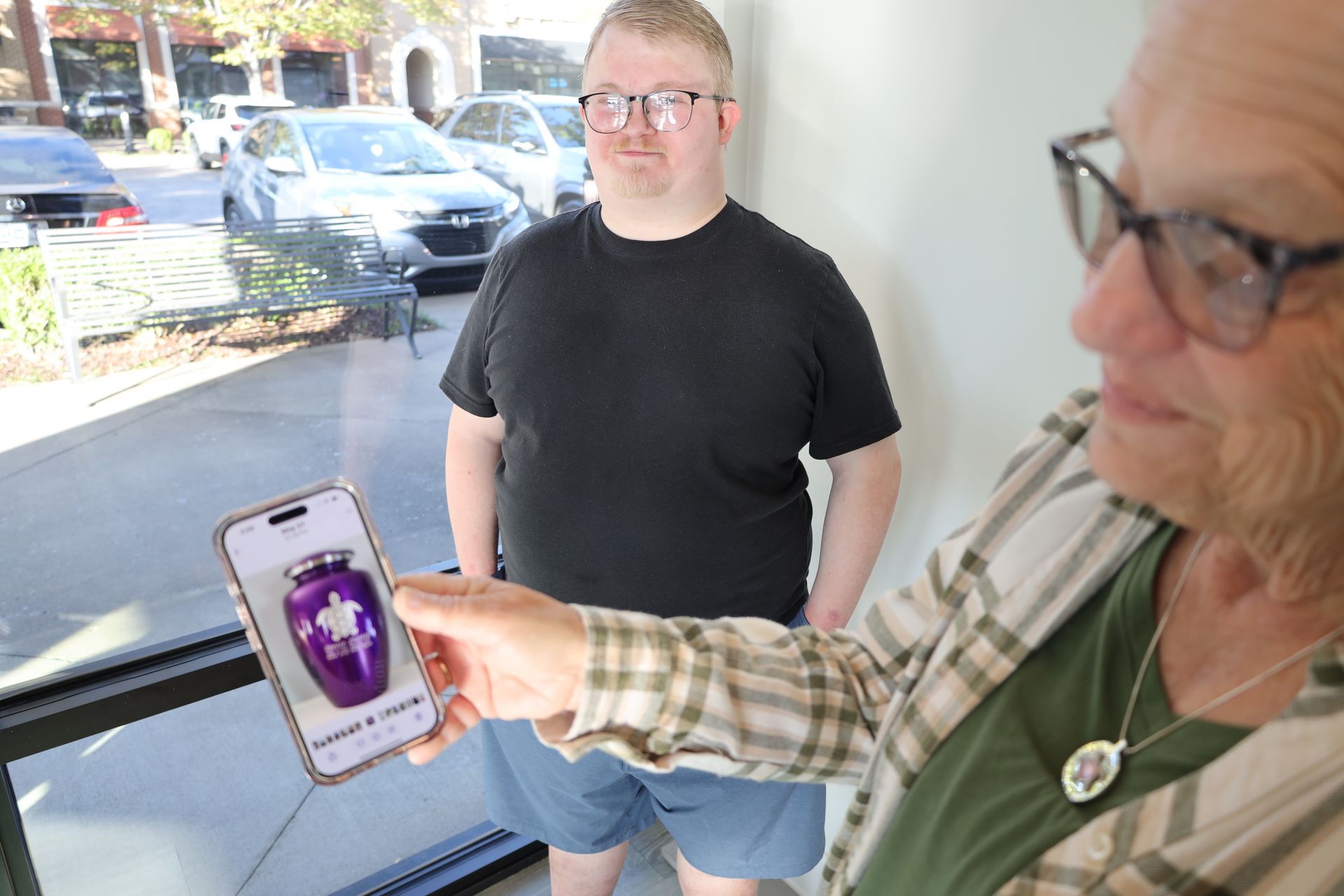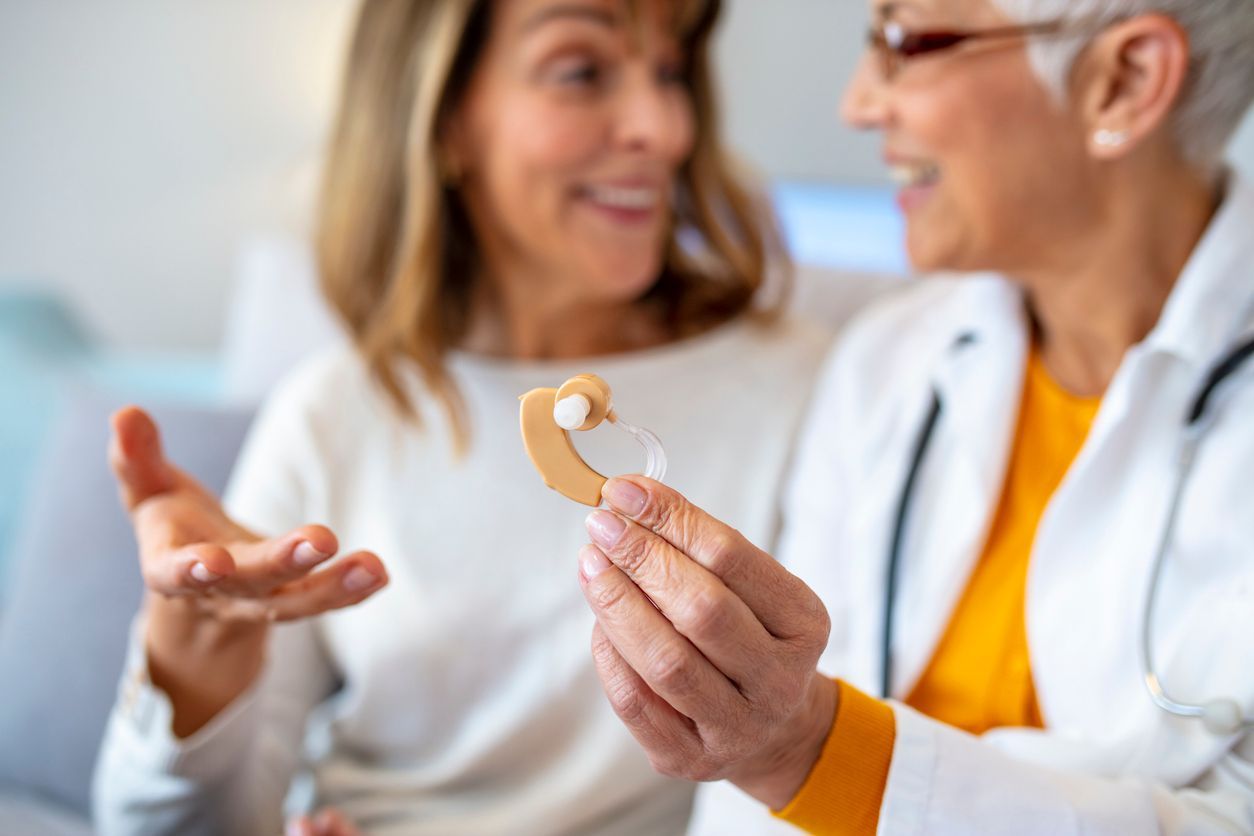Patient Stories – Independence Day With Hearing Aids

Most of us welcome the celebration of Independence Day; a special occasion for parties, barbecues, fireworks, and the opportunity to re-connect with family and friends. But for those who have a hearing loss, it is often a different experience altogether. Celebrations like these can often be a cause of anxiety because of communication difficulties, loud music, shouting, and fireworks. It all becomes very overwhelming and tiring. Usually, people with hearing difficulties avoid these occasions altogether, which is always a big concern for us because of the additional health risks social isolation can bring.
But this doesn’t need to be the way!
We spoke to a small group of our dear patients and asked them to share the positive impact that their hearing aids have had on their Fourth of July. The response we’ve had has been overwhelming.
Here we share with you their precious stories of how their hearing aids have changed their lives. We hope you enjoy reading them…
“My neighborhood had a spectacular fireworks show!!! I was so blessed not only to see the fireworks but to hear them better as well!!! I was unaware of all the sounds I was missing until I got my hearing aids! I am forever grateful to Johnson Audiology and highly recommend them to anyone who is experiencing any hearing loss or other issues! Thank you for helping me to hear my great granddaughter’s precious little voice more clearly!!!”
–Reba
“Any activities outdoors during the 4th of July, such as barbequing, I was able to communicate with friends and family without distractions.”
–Joseph
“I have really enjoyed my new hearing aids. Seventeen of our children came over July 4th for a cookout, and I was able to join in all conversations and hear the fireworks more than ever. Thanks to you!”
–Roland
“I went to the old town of Franklin 4th of July festivities. I walked around at different booths and interacted in conversation with my husband. I listened to the band playing Aretha Franklin hits, had small conversation while they played. Then we went to Mellow Mushroom and sat on the patio and engaged in conversation while waiting for the next country band. It was a day filled with various and challenging listening environments so I’m glad I had my hearing aids.”
–Michele
“I attended the annual Barbershop Harmony Society International Convention in Salt Lake City competition over the 4th of July! My chorus, The Sound of Tennessee, placed 17th in the world!! I would not be able to enjoy my music without my hearing aids! My life is enhanced.”
–Dave
“For my Fourth of July weekend, my wife and I attended a Fourth of July party and cook-out with neighbors at a home in our Ocoee Mountain Club Community. Without my cochlear implant, I would not have been able to participate in conversation and enjoy their company. Later in the evening we enjoyed “A Capital Fourth” on PBS and enjoyed listening to the music thanks to my cochlear implant.”
–Ron
“When I decided it was time to replace my nearly 5-year-old hearing aids, I did not consider going anywhere else but Johnson Audiology. Dr. Megan Johnson spent a lot of time with me asking about my life, what I did, and what I enjoyed doing. Music is a huge part of my life. Over the 4th of July long weekend, I spent most of it listening to Pandora. For the first time in years, I was able to hear the soft sound of cymbals. My hearing aids are so advanced that settings like speech clarity and background noise can easily be adjusted through my iPhone.”
— Terry
“This year, July 4th, 2019, I celebrated my granddaughter’s 4th birthday with my family. Last year, I could not hear or understand what my granddaughter was saying to me–I could hear her voice but that was all. I purchased my hearing aids because I wanted to hear her words and understand what she was saying to me and this year, after wearing my hearing aids, I could hear and understand! Plus, I was so tired of asking people to repeat what they had said, and they were tired of hearing me ask that question–now I don’t have to ask it anymore! What a blessing. Dr. Johnson is such a personable audiologist and cares about what we need, and she will provide those needs for us.”
–Linda
“I work on the railroad and was on duty this Fourth of July. As always, my hearing aids and special care I receive from the
Johnson Audiology staff help me to work safely and communicate clearly with fellow railroaders, both face-to-face and over the two-way radios we use.”
–Jack
“I had a great time on the Fourth. Without my new hearing aids, I don’t believe that I would have enjoyed the sound of the fireworks, the band that was downtown. I enjoyed dancing and sing. I was able to really hear what was family and friends were saying. I thank u and your staff again for this blessing.”
–Linda
“Ours was a “quiet” 4th and not because I couldn’t hear as wat the case many years ago. Without my hearing aids, we would have watched on TV our annual tradition “Independence Day” programming at a volume that would chase the audience into another part of the house. Before my hearing aids, my part of the conversation was “huh,” “pardon me,” and the like…Quite honestly, when I first started wearing hearing aids, I avoided fireworks because I feared the display would be too loud. However, my updated aids allow for not only reduction of volume, but directional control. The Bluetooth connection allows me to listen to music in the background. So blast away pyrotechnics.”
–Ann
“Thanks to the clear hearing aids and professional services of Johnson Audiology, July 4, 2019, was my personal freedom day from years of missing out on hearing and being an active participant in the family banter around the table and the group gathering after our annual celebration meal. Clearly hearing the conversations and interactions with my wife, our two adult children, and our four grands was a true joy, an experience I will not soon forget. They too seemed to enjoy me once again being emotionally present and fully engaged in the storytelling, laughter and memory-making day.”
— Cecil
“I played in a bridge tournament on the 4th of July. I was able to hear all of the conversations, and I clearly heard my partner’s requests that I play a specific card when I was dummy. The hearing aids make me feel more included in group conversations. I played in the tournament 5 our of 7 days during the first full week of July.”
–Barbara
“The 4th of July, this year, was especially blessed as well as exciting. Our large family gathered at our house for a day of food, fireworks and, best of all, conversations from every part of the room, in which I was able to participate. To be able to join in on all the frivolity added to the memories installed in my Family Album!! I recommend Johnson Audiology to everyone whom has a difficult time joining in activities in which hearing is of utmost importance!”
–Myrna
“The Fourth of July definitely was special this year for me. Being able to catch all the side conversations especially with the small grandchildren at the dinner table when the family gathered, was fantastic! My three-year-old grandson said to me about halfway through the meal, “ Gramma, I love you!” And I actually heard that and did not have to have him repeat what he said. Thank you!”
–Kathy
“Our 4th of July cookout was especially good this year. I could actually hear my grandchildren’s conversation for the first time in a long time. The fireworks were really loud but with the use of my cell phone I could turn them down! I wear them all day every day.”
— Robert
“Mother would’ve never even participated in our 4th of July party if she did not get her hearing aids last year. We now can even trust her to watch and babysit her 2-year-old great-grandson, which was not possible prior to her hearing aids.”
–Candace
“Fireworks are primarily a visual display, even though there is a loud “boom” at the explosion. I generally watch for the colors in the night sky as opposed to listening to the “pop-pop-pop.” Probably the most noticeable difference of life experienced WITH my hearing aids is in the family setting. It’s so nice not to have to say “What did you say?” or “Say again?”, especially when my 4-year-old grandson is talking to me. Watching the fireworks through his eyes and being able to hear his little high pitched, child’s voice is truly a gift as was being in a group with my favorite people, my family and being able to understand everyone clearly, even with them facing away from me – no need to read lips this year.”
–Kimberly
“Hearing aids have lessened my stress and opened up a new world for me. Before I received my hearing aids I struggled to hear conversation of family and friends, especially if we were eating out. With my hearing aids firmly in place, I can hear what is going on around me. I no longer have to guess what someone said or sit quietly because I can’t hear the conversation. I knew I was missing out before but stubbornly felt I could just deal with it. I also felt hearing aids couldn’t help that much. I finally gave in and got hearing aids. I’m so glad I did! The difference is life-changing. I’m thrilled to be able to hear so many things I couldn’t before. I love being able to hear the first time I am spoken to and not having to ask the speaker to repeat what they said.”
–Dianne
Don’t let hearing loss stop you from enjoying the life you deserve. Hearing aid technology has advanced rapidly over the past 30 years and can help you to reconnect with the world around you. This means not missing out on family celebrations … just like many Johnson Audiology patients who have shared their experience here. Let Johson Audiology assess your hearing and get it back on track so you can ensure you don’t ever miss another celebration.
Click here to make an appointment to see us and get started on your new hearing journey.
Recent Posts



